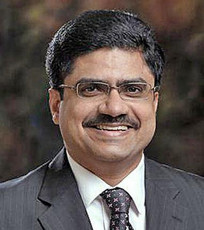Southern India Mills’ Association thanked the Government for extending the optional route Cenvat for textiles, which was one of the demands of industry, till GST was implemented, to have a level playing field. SIMA Chairman T Rajkumar in a statement said that the exempting cotton transport loading and unloading services from the purview of service tax, will give a considerable relief to the industry and cotton farmers, as the mills in the South sourced more than 70 per cent of their raw material from upcountry markets.
“We had sought continuation of optional route till GST is implemented to have a level playing field. The optional route has been in vogue from July 2004 and it has helped the industry achieve significant growth despite the recession in 2008-09 and 2010-11,” he said. He however appealed for reduction in the CST from 2 per cent to one per cent, as the Government had committed to phase out CST before implementing GST.
The SIMA Chief also hailed the 15 per cent allowance on investments made towards plant and machinery for over Rs. 25 crore, faster clearance of import and export cargos, and setting up of textile clusters.
A Sakthivel, President, Tirupur Exporters Association, welcomed the budget and termed it as a pragmatic one giving more thrust for boosting manufacturing sector through infrastructure development in Roads, Ports and Power. Shaktivel welcomed announcement of investment allowance at 15 per cent to a manufacturing company that invests more than Rs 25 core in any year in new plant and machinery and noted this will be beneficial to garment entrepreneurs.
Meanwhile, the Tirupur Exporters and Manufacturers Association (TEAMA) president M P Muthu Rathinam said the announcements, including various schemes for the knitwear export sector, would help the sector. However, he called for increase in allocation amount and their effective utilisation.
Commenting on the budget, the president of South India Hosiery Manufacturers Association (SIHMA) AC Eswaran said, “The announcements on creating new industrial cities, skill development, power supply, solar power generation schemes and various tax concessions would benefit the industry.”





